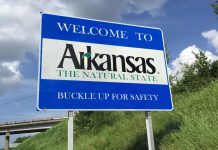Members of America’s armed forces will now have to undergo screening for gambling addiction thanks to a new provision contained within the National Defence Authorisation Act that was signed into law by President Trump this week.
Section 733 of the House Armed Services Committee Report 115-874 requires the Department of Defence (DoD) to incorporate medical screening questions specific to gambling disorder in the next annual periodic health assessment conducted by the Department as well as in the Health Related Behaviours Surveys of Active-Duty and reserve component service members. The Secretary of Defence is required to submit a report to Congress on the findings of the assessment and surveys in connection with the prevalence of gambling disorder among service members.
According to the National Council on Problem Gambling (NCPG), this measure has been a top legislative priority for the past 16 years. Gambling disorder screening questions were included in large scale surveys of active duty personnel throughout the 1990’s until 2002, when the questions were removed.
NCPG executive director Keith Whyte said: “Previous DoD surveys have found active duty personnel are two to three times more likely to have gambling problems than civilians. Better detection of gambling problems improves overall health and reduces social costs. Undetected gambling addiction exacerbates substance use disorders, depression and suicidal behaviour.”
He added: “NCPG strongly believes military personnel need and deserve effective gambling addiction prevention, education, treatment, enforcement, research, responsible gaming and recovery services. With the provision requiring members of the Armed Forces to be screened for gambling addiction, championed by Senator Elizabeth Warren, we take a vital step to improving the lives of service members and their families.”
The DoD generates $100m each year from the 3,141 slot machines on overseas bases. Slot machines have been outlawed on domestic military installations since 1951.The NCPG estimates that as many as 56,000 active duty members of the armed forces meet criteria for a gambling disorder.














